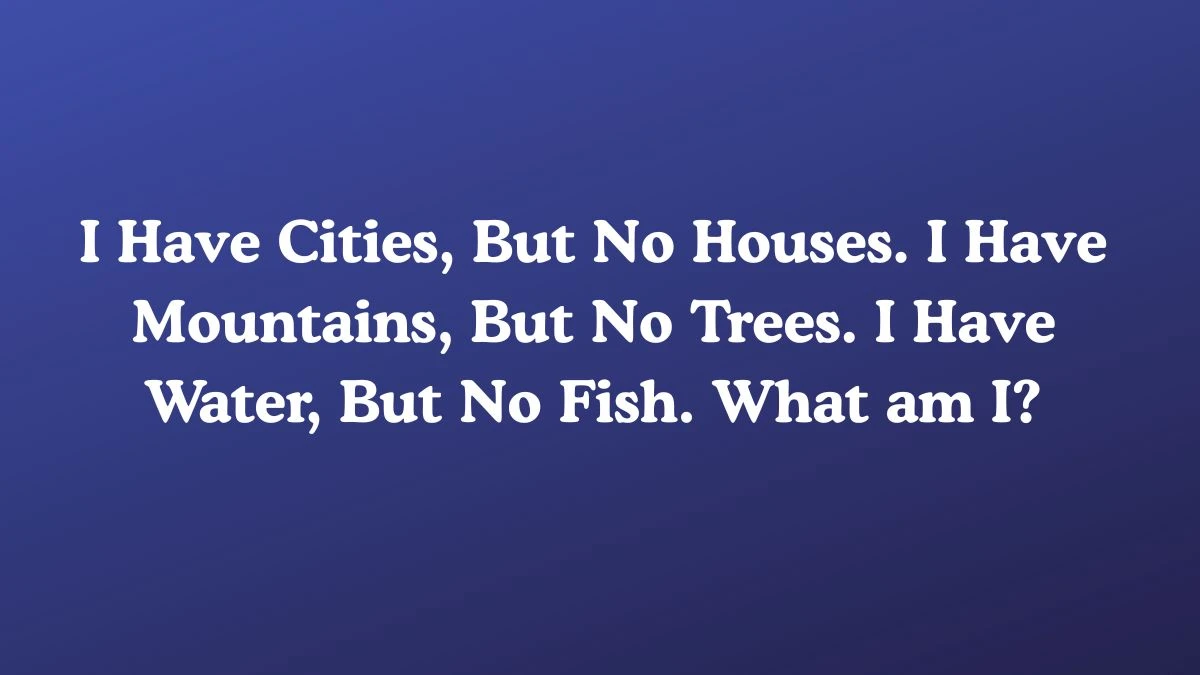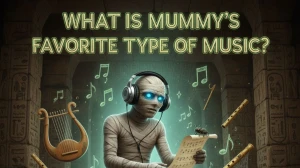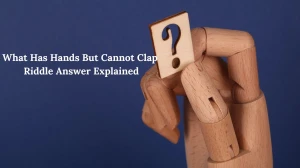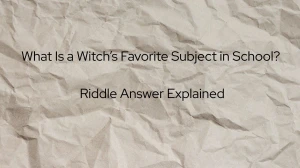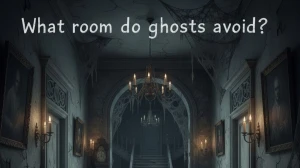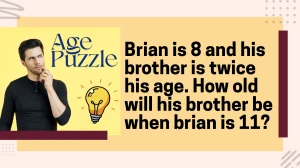I have cities, but no houses. I have mountains, but no trees. I have water, but no fish. What am I?
Riddles have been a part of human culture for centuries, sparking curiosity, amusement, and sometimes frustration. One riddle that continues to perplex and intrigue people goes like this:
"I have cities, but no houses. I have mountains, but no trees. I have water, but no fish. What am I?"
At first glance, it seems like an impossible puzzle. How can something have cities without houses? Or mountains without trees? Or water without fish? The answer lies in thinking beyond the literal and diving into abstract thinking. Let’s break it down.
Breaking Down the Clues
"I have cities, but no houses"
Cities are typically bustling with life, complete with homes, businesses, and streets. But here, the riddle says there are cities — yet, no houses. This could point to something that represents cities without the physical structures we associate with them.
"I have mountains, but no trees"
Mountains are often covered in forests, or at least have vegetation at their base. However, this riddle suggests mountains without trees. This is a clue that we're not dealing with a real-world mountain but a depiction of one.
"I have water, but no fish"
Water usually means life — lakes and rivers teeming with fish, oceans full of aquatic life. But here, it seems the water is devoid of its usual inhabitants, suggesting something that merely represents water.
I have cities, but no houses. I have mountains, but no trees. I have water, but no fish. What am I? Riddle Answer
The answer to this riddle is simple- a map.
A map depicts cities — but only as symbols, dots, or names, without any actual buildings or houses.
It shows mountains — but only as shapes or contours, with no trees growing on them.
A map shows rivers, lakes, or oceans — but there are no fish swimming in those bodies of water.
A map is a representation of the world. It captures the features of the land, but it doesn't contain the actual physical characteristics we associate with those features. There are no real houses, trees, or fish — just their symbolic representations.
Follow our page for lot more interesting riddles.

